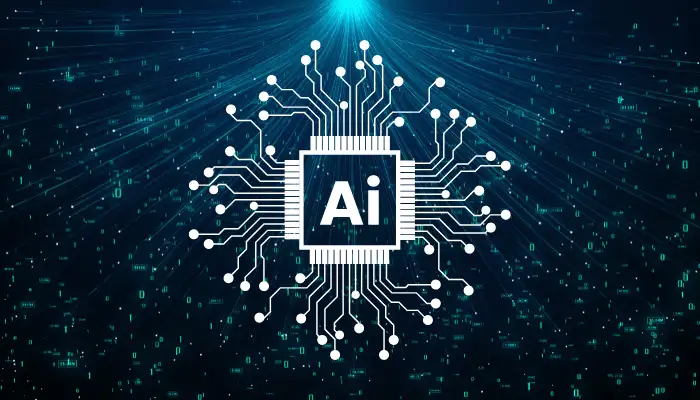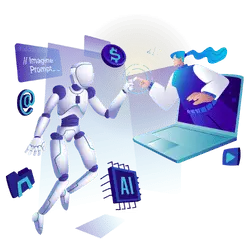A few days ago I was captivated by an interesting newspaper article. It focused on the outcome of ChatGPT on the IIT Advanced entrance exam. ChatGPT scored lower than the norm and failed to pass the exam. After further investigation the tool, it became clear that the tool had produced identical payoff on both the NEET AND CLAT admission examinations specifically in the logic and analytical section.
I can recall that, two decades ago there was an uproar regarding the current World Chess champion Garry Kasparov having been defeated by IBM’s machine Deep Blue in the first several rounds. But, in the end, Kasparov managed to up his game, and was declared the winner.
Artificial Intelligence (AI) is dominating our minds for the last several years. It is being utilized in the medical field, financial industry, banking businesses, law firms and defense and nuclear energy programs and other areas. Researchers are particularly enthusiastic by its potential applications within the field of biological sciences. there is a huge potential for the field of genetics and healthcare. This could be an effective tool for outreach in remote areas and those that have a shortage of medical facilities. In all it has a huge potential and awe-inspiring.

Understanding Artificial Intelligence
What is AI? AI is artificial intelligence that simulates human. Humans have developed programs and algorithms that are put into machines in order to add consistent, repeatable and reproducible payoff across a variety of time. It is comprised of various elements that include basic automation as well as machine learning and deep learning. Recognizing the enormous potential that is still unexplored, enough money and time is being put into the field by top companies to ensure that they are ahead of the curve to be competitive in the near future.
Precision and Efficiency: AI vs. Human Intelligence
Numerous studies and experiments are being conducted to test the efficacy and effectiveness of AI vs human beings. We can conclude that at present, the tasks that can be repeated and reproduced can be accomplished when using AI because of the speed and precision. But when it comes down to the subjectivity aspect, AI falls short, when it comes to making decisions for complex surgery, where robotics may not function like a skilled surgeon. Another scenario we encounter frequently is when together Google Maps while driving. While they can be a tremendous help but they’re far from completely safe, like when it comes to children who drove through uncharted areas at night. They were transported to a body of water and sadly met with their enemy. You may be familiar with the tale of Frankenstein’s Monster A fictional creature that caused so much chaos and caused regret for the person who created him.
Ethical Concerns in AI
The most contentious aspect of AI involves ethical questions. The reality is that when advanced and sophisticated techniques are put to ethics tests, they become an uncertain zone. This reckless advance of AI has raised grave concerns from the top government levels and even during the AI summit that was held recently in the UK the participants have decided to hold off until ethical formulas are developed. It should come as an unsurprising coincidence that the Collins Dictionary’s word for 2023 is said to be artificial intelligence.
Pros and Cons of AI
The benefits and effectiveness of AI can be questioned but the potential cons and hazards cannot be overlooked. The increasing rate of cybercrimes leading to financial fraud is alarming. The same is true for counterfeits and fakes. This is not even including the stress that many suffer by their job getting taken off by automated systems.
The Promising but Uncertain Future of AI
It is possible to say that the future looks promising however it is a little scary. It isn’t clear if, when we try to design an all-super race made of Homo sapiens we could produce an abomination called Frankenstein.
AI’s application in various fields is huge. For example, in the field of medicine AI could benefit with diagnosis, individualized treatment strategies, and even in predicting outbreaks of disease. Financial institutions employ AI to detect fraud in customer service as well as investment prediction. Within the banking industry, AI assists with risk control, regulatory compliance and personalised banking. Businesses rely on AI to acquire insights from customers and supply chain optimization as well as process automation.
AI in Critical Sectors
Legally, AI aids in legal research, document reviews as well as predicting outcome. Defence applications of AI are autonomous drones security and detection of threats. Industries that produce nuclear energy use AI to monitor safety in addition to predictive maintenance. efficiency in operation. Space-related programs can benefit of AI when planning missions as well as data analysis as well as autonomous navigation.
AI in Healthcare and Genetics
Healthcare is a field in which AI’s capabilities are transformational. From diagnosing disease with images to forecasting the outcomes of patients using machines learning AI can revolutionize the area. Genetic research is also benefited by AI’s capacity to study vast data sets, resulting in advancements in the field of personalized medicine as well as genetic therapy.
Automation, Machine Learning, and Deep Learning
AI’s components–automation, machine learning, and deep learning–each play a crucial role. Automation is with technology to accomplish jobs without the intervention of humans. Machine learning makes it possible for the systems to grow and increase by gaining previous experience. Deep learning, an aspect of machine learning employs neural networks for modeling complicated patterns that are present in the data.
Investment in AI Research
Large corporations around the world invest massively in AI research. The competition to maximize AI’s capabilities is driven by the prospect of huge benefits to competitiveness. From giants of the tech industry such as Google, Microsoft, and IBM to small-scale startups and startups, investment in AI covers a wide range of fields and applications.
The Human Element in AI
Even with the advancements in AI humans are unbeatable in many fields. Creativity, decision-making, and emotional intelligence are fields in which humans have continued to outperform over machines. The complexity of surgeries, business choices, and innovative projects highlight the limits of AI.
Ethical and Regulatory Considerations
Rapid advancements in AI has raised ethical and regulatory concerns. Data security, privacy issues and biases in algorithmic algorithms are urgent issues. The government and the organizations need to work together in the development of frameworks to assure AI is utilized in a responsible manner and ethically.
Conclusion
In the end, the challenge of artificial intelligence is the right balance between the ethical and practical issues it poses. Although AI can bring significant advantages across diverse industries, it presents risks that can’t be overlooked. Future of AI promises to be both exciting but also uncertain. It requires careful use of its abilities safely.
FAQs
- What exactly is Artificial Intelligence? Artificial intelligence (AI) is the process of resembling human brains in machines that are programmed to be able to comprehend and make decisions.
- What are the ways in which AI utilized in health care? AI is used in the field of healthcare to diagnose as well as personalized treatment strategies and for predicting the spread of diseases.
- What are ethical issues associated with AI? Ethical concerns cover privacy, security of data algorithms, biases in algorithmic design, as well as its impact on employment.
- Does AI take over human decisions? While AI can aid in making decisions but it is not able to match the creativeness as well as emotional intelligence and the strategic ability that humans have.
- What’s the future of AI? The future of AI promises to be exciting but it is also not certain, and it has great potential positives and risks that demand the right handling.


